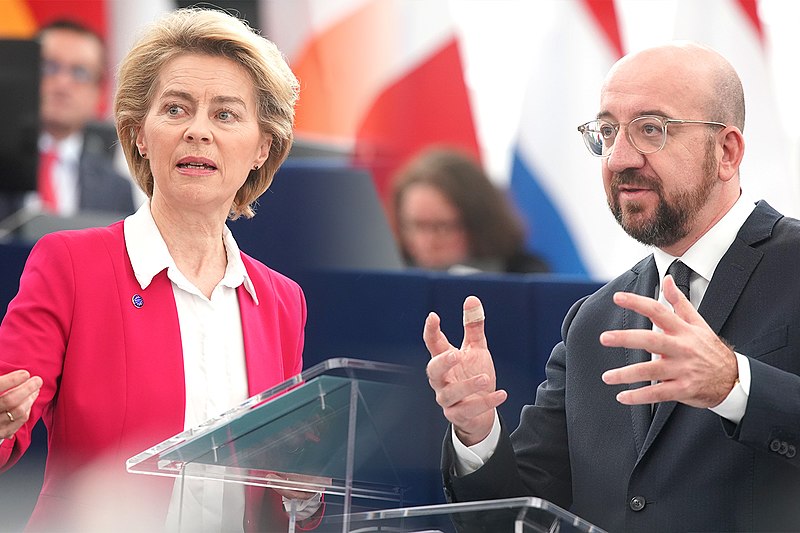EU leaders on Tuesday are expected to greenlight a temporary closure of the bloc's external borders in a bid to ramp up coordination among member states in the face of the coronavirus pandemic.
The EU Commission on Monday called on the bloc to ban all non-essential travel into the EU+ area, defined as all countries in the Schengen Zone as well as Switzerland, Iceland, Norway and Liechtenstein.
The temporary measure would also include Ireland and the United Kingdom "if they decide to align," the Commission wrote in preliminary guidelines to the proposal.
EU heads of state are set to discuss the measure in a meeting held via videoconference on Tuesday afternoon, in which they are also expected to outline a course of action regarding the bloc's internal borders.
As the outbreak shows signs of receding in China, the World Health Organisation (WHO) declared Europe the new epicentre of the pandemic, which has put Italy, Spain and, most recently France under nationwide lockdowns.
Related News
- Coronavirus: WHO calls for 'boldest' measures in Europe
- Coronavirus Numbers: over 7,050 deaths worldwide
- Belgian doctor says young coronavirus patients also getting 'severely ill'
The call by the EU Commission to impose the border comes after at least ten EU states moved to reinstate controls with bordering EU countries, among which figured Denmark, Poland, Austria, the Czech Republic or Slovakia.
"We must coordinate the measures we take," Commission President Ursula von der Leyen said in a press conference on Monday evening, adding that while the measures were difficult they were necessary for the current situation.
"Such a measure would also enable the lifting of internal border control measures, which several Member States have recently reintroduced in an effort to limit the spread of the virus," according to the Commission.
In the address, von der Leyen said that the measure would not apply to EU citizens coming back home, to health care workers or to cross-border commuters.
Repatriation of EU citizens abroad, ensuring sufficient stocks of medical equipment and devices and economic relief measures are all subjects leaders will discuss on Tuesday evening, von der Leyen said.
Commission spokesperson Adalbert Jahnz said that while the EU had called on member states to facilitate the return of EU citizens abroad, it was not currently coordinating any repatriation efforts.
But ahead of the meeting, Germany has already launched repatriation procedures for country nationals from countries like Morocco, the Dominican Republic, the Philippines, Egypt and the Maldives.
Belgium's foreign affairs ministry also said that it was organising the repatriation of 720 Belgians in Morocco, after commercial air traffic between both countries was suspended.
The travel restrictions should be put in place for an initial period of 30 days which could be prolonged if necessary, the Commission said in a press release.
Update:
Updates: The Commission told The Brussels Times today that the following countries have notified it of the temporary introduction of borders controls: EU member states Austria, Czech Republic, Denmark, Hungary, Lithuania, Poland, Germany, Estonia, and non-EU countries Switzerland and Norway.
The Commission is still working on compiling an overview of measures taken at the borders.
Explaining the guidelines on border controls issued yesterday, the Commission said that the guidelines make clear that a member state must not deny entry to EU citizens or third-country nationals residing on its territory and must facilitate transit of other EU citizens and residents that are returning home.
They can however take measures such as requiring a period of self-isolation, if they impose the same requirements on their own nationals. People who are sick should not be denied entry but given access to healthcare.
The Commission also clarified today that the decision on Friday on export authorisation for protective equipment to non-EU countries does not cover testing kits.
Gabriela Galindo
The Brussels Times

